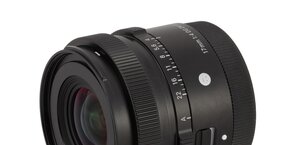Tamron SP 90 mm f/2.8 Di MACRO 1:1 VC USD
8. Vignetting

Our measurements confirm it. At the maximum relative aperture the brightness loss in the frame corners is slight, amounting to just 19% (−0.61 EV). The problem disappears almost completely on stopping down the aperture to the value of f/4.0, In this case the vignetting is reaching just 4% (−0.11 EV).
Please Support UsIf you enjoy our reviews and articles, and you want us to continue our work please, support our website by donating through PayPal. The funds are going to be used for paying our editorial team, renting servers, and equipping our testing studio; only that way we will be able to continue providing you interesting content for free. |
- - - - - - - - - - - - - - - - - - - - - - - - - - - - - - - - - - - - - - - - - - - - - - - -
The chart below shows clearly that in this category both Tamrons fare equally well compared to their competitors, showing the smallest values in this group of lenses.
| |
Tamron 2.8/90 VC |
Tamron 2.8/90 |
Canon 2.8/100L IS |
Nikkor 2.8/105 VR |
Sigma 2.8/105 OS |
| f/2.8 |
19% |
16% |
20% |
25% |
24% |
| f/4.0 |
4% |
3% |
5% |
5% |
5% |
When it comes to full frame you can see serious vignetting problems only at the maximum relative aperture, where the brightness loss in the corners amounts to as much as 46% (-1.78 EV).

The vignetting becomes moderate by f/4.0 where it is 22% (-0.73 EV). The aberration disappears completely by f/5.6 where it reaches only 7% (-0.22 EV).
Looking at the chart below you can see that in this category the Canon fares the best. Behind it are the Tamron and the Nikkor, presenting similar performance. The Nikkor is a tad better at the maximum aperture, the Tamron prevails on stopping down. The Sigma is the worst of them all.
| |
Tamron 2.8/90 VC |
Canon 2.8/100L IS |
Nikkor 2.8/105 VR |
Sigma 2.8/105 OS |
| f/2.8 |
46% |
43% |
42% |
54% |
| f/4.0 |
22% |
20% |
26% |
26% |
| f/5.6 |
7% |
8% |
12% |
7% |
 |






